A general anaesthesia or 'GA' is used when a pet needs a procedure that requires them to be unconscious and unable to feel pain. A general anaesthesia is either administered via intravenous medications or a combination of intravenous and gaseous anaesthesia. Your vet will determine the safest route of administration for your pet.
Overall sedation and anaesthesia are very safe, with advancements in patient monitoring and anaesthesia protocols making it safer than ever! Most patients will have no noticeable side effects, even for older patients or those with medical conditions. When a patient is anaesthetised, they will have a dedicated anaesthetic nurse with them at all times monitoring them.
However, although very safe, it is not without some risks and because of this we still recommend pre-anaesthetic blood testing prior to any anaesthesia, as this enables our vets to be fully informed of possible risks specific to your individual pet. If you have any concerns regarding anaesthesia, please discuss this with your veterinarian prior to your pets procedure.
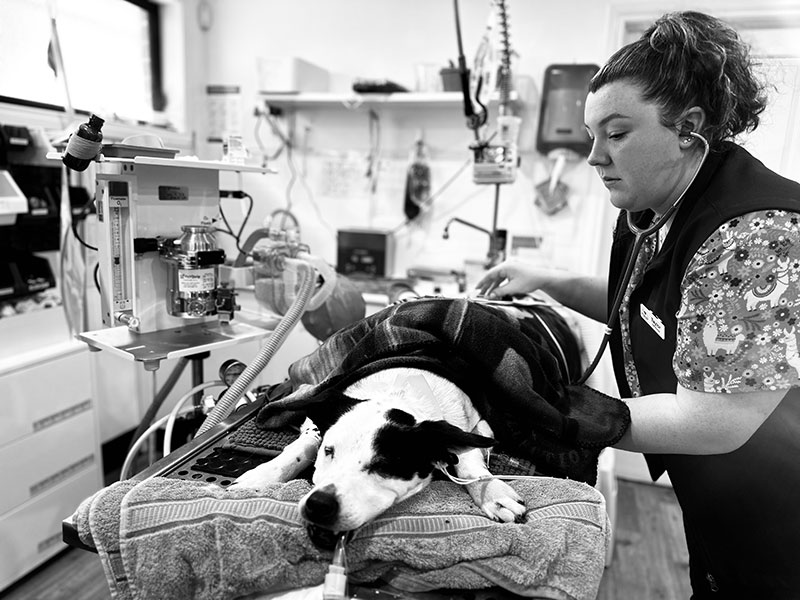
Brachycephalic Obstructive Airway Surgery (BOAS) is an obstructive respiratory complex that is known to affect short nose or 'squash faced' breeds. Typically these breeds will snore at night, and may have exercise intolerance when compared to other breeds, simply because anatomically they struggle to breath.
It is a genetic combination of a long soft palate, everted laryngeal saccules, and stenotic (closed over) nose openings and a few other things. Our vets will be able to assess your pet and inform you if they are suffering from this condition, and give you detailed information about surgical correction. We refer our patients to a third party hospital for surgical procedures.
Our team manage your pet right through the process, including on the day, so they are will familiar people. Dr Adrian performs the surgery and then we manage all follow up requirements as well.
This procedure is a day procedure at the hospital because stress has been shown to increase the risk of post-surgical complications. It is for this reason we will discharge your pet home with you, so they are less stressed than being in hospital.
All bookings require a $500 deposit at the time of booking.
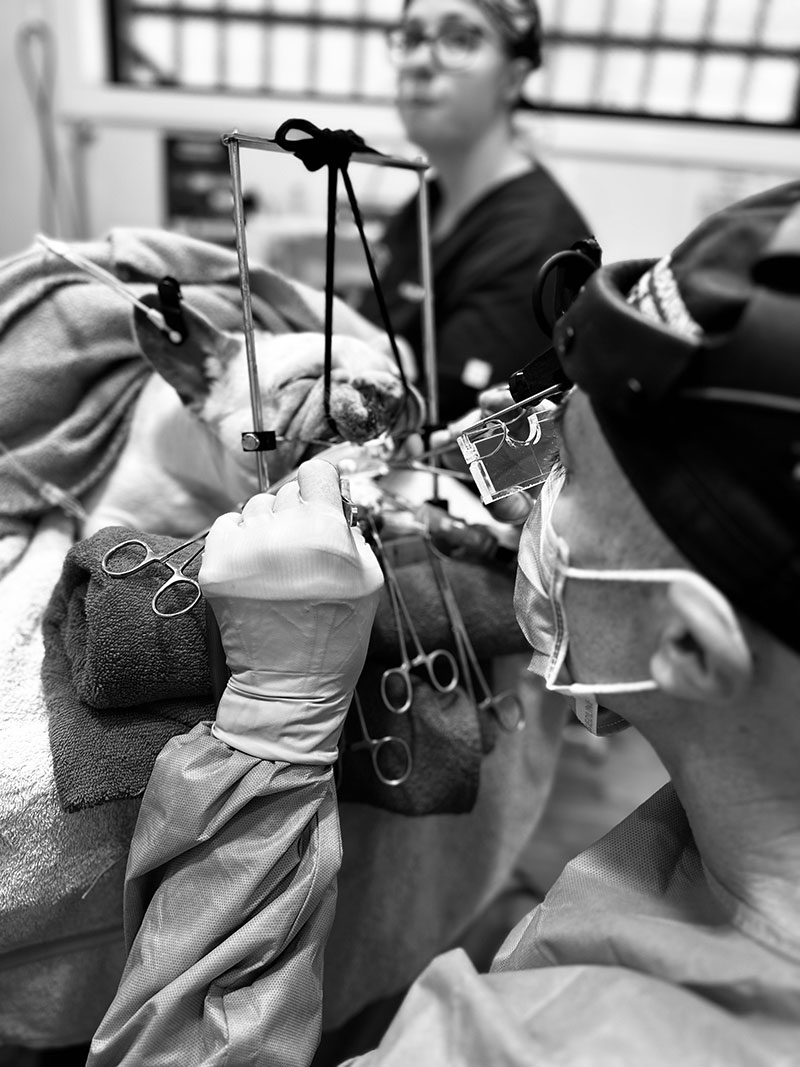
Whether it be an elective or emergency caesarean all our vets can perform caesareans to assist in the birth of either puppies or kittens.
For elective caesareans we utilise our in-house laboratory to perform serial progesterone testing in your pet, to be able to determine the optimal time to perform the procedure to protect both mum and the puppies. Some brachycephalic breeds, who have larger head size or dogs and cats who have had a previous difficulties birthing, are recommended to have elective caesarean procedures.
Unfortunately, these procedures are high risk of happening out of business hours. Our vets will be called in to assist your pet, but please make sure you are fully informed about our after-hours protocol and ask in advance about after hours surcharges.
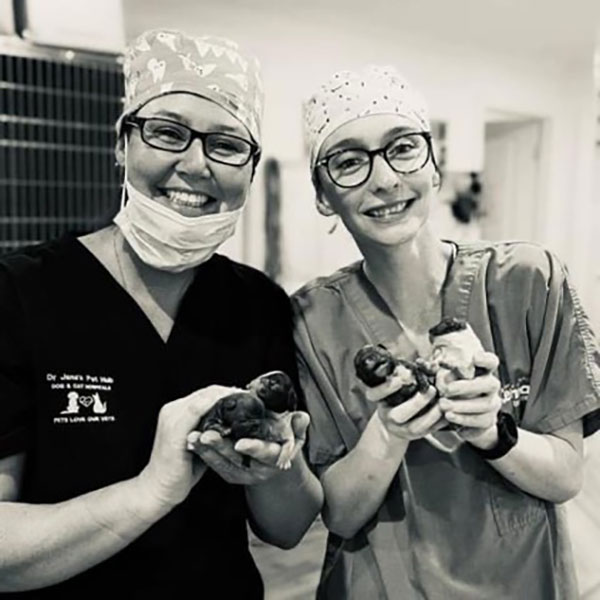
Our team is passionate about Dental health in pets. Statistically 80% of cats and dogs have dental disease by the age of 3 years. That's an alarming statistic! Poor dental hygiene increases the risk of bad breath, kidney disease, heart disease and the need for major tooth extractions.
Historically we have not done a great job at helping pet owners understand their responsibility for their pets dental hygiene. That's about to change! Overall the way you think about your own teeth, reflects how we should think about our pets teeth. Just like our children, we have a responsibility to make sure we do something to clean our pets teeth every day.
As puppies and kittens we need to teach our pets that is 'normal' to brush their teeth! Teeth brushing is the cheapest and most efficient way of keeping our pets teeth clean. You must use a pet tooth paste, not human tooth paste, and with great training it can be made into something really fun that your pet will look forward to.
We place a strong emphasis on home care, and spend time speaking to you about alternative home care approaches that can include brushing teeth, dental treats, dental food, Oxyfresh and other methods.
We include information on dental hygiene and a dental check in all consultations and cover it as a topic at puppy pre-school.
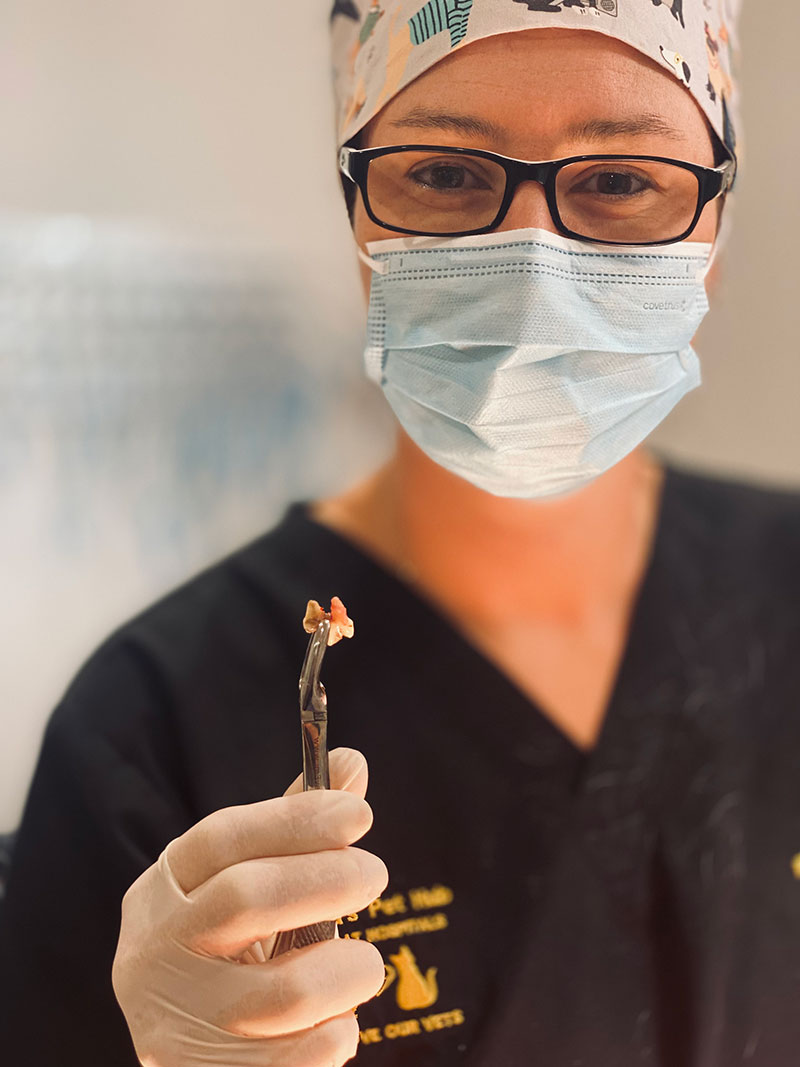
Our team are able to diagnose and medically manage orthopaedic conditions. We utilise the surgical skills of specialist surgeon Dr. Adrian Wallace from Melbourne Animal Referral Service for all our orthopaedic repairs. If this is not possible due to the timing of the surgical repair, we will discuss referral options for your pet with you to ensure they get the best treatment possible.
When your pet is scheduled to have sedation or anaesthesia to facilitate a procedure, your vet will talk to you about pre-anaesthesia blood testing. Ensuring your pets safety is our # 1 priority. These tests do come at an additional price, but the information we gain from it is very valuable, even if it is all normal!
A pre-anaesthetic blood test has a look at your pets kidney and liver function, which are the main organs used to process drugs within the body. It will also screen your pet for diabetes and protein levels, and we assess your pets level of hydration and screens for any anaemias. For best practice and peace of mind, this is money well spent! These tests are either done in advance, or on the day of the procedure based on your vets recommendations.
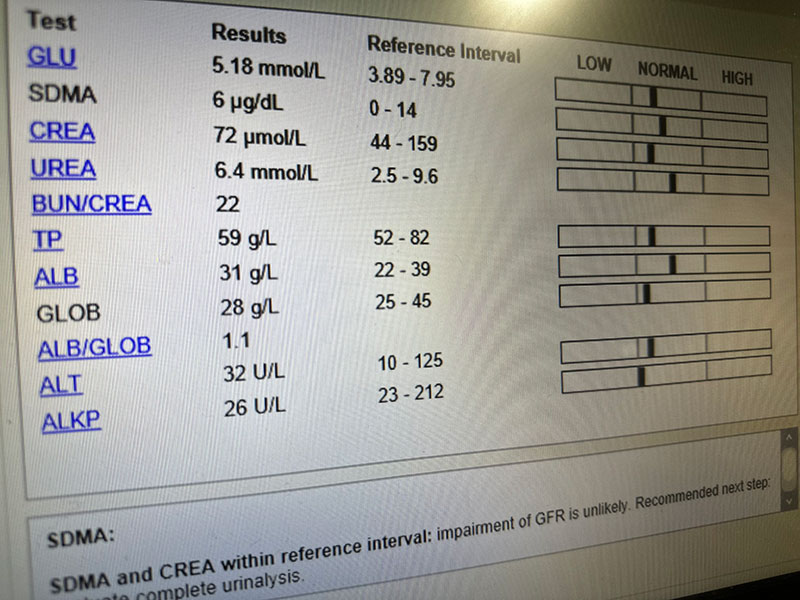
Desexing recommendations have changed dramatically over the last few years for dogs. Particularly for large to giant breed dogs, we won't recommend to desex your pet until their fully grown, and for some breeds there are recommendations against even getting your pet desexed! This is an important conversation for you to have with your vet, who will be able to give you the best possible choices regarding desexing your pet.
The recommendation for cats is still to desex your male or female cat by 4 months of age, as this is the age female cats are able to fall pregnant.
Traditionally we have always performed surgical desexing, and this still represents the main method. However, there are other options available such as 'chemical castration' available for male dogs, which prevents pregnancy and is reversible, should you want to breed with your pet later on.
Albury Animal Hospital participates in the Australian Veterinary Association initiative of making desexings more affordable to pet owners, and as such our desexing surgeries are heavily discounted, usually less than 50% of the true cost of the procedure.
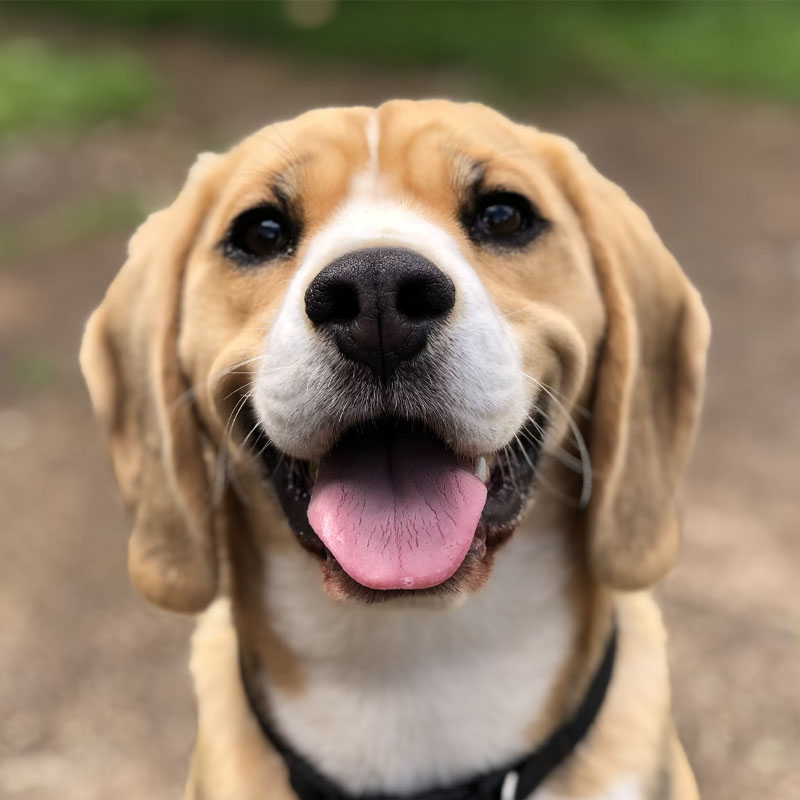
Our Vets are highly skilled and trained in surgery, and are able to perform most soft tissue surgeries. These are performed in our onsite dedicated cat and dog hospitals. For more complex surgeries, Dr Adrian Wallace from Melbourne Animal Referral Service assists our team Melbourne Animal Referral Services, or we will discuss referral of your pet to another facility, generally we recommend Animal Referral Hospital (ARH) in either Canberra or Essendon.
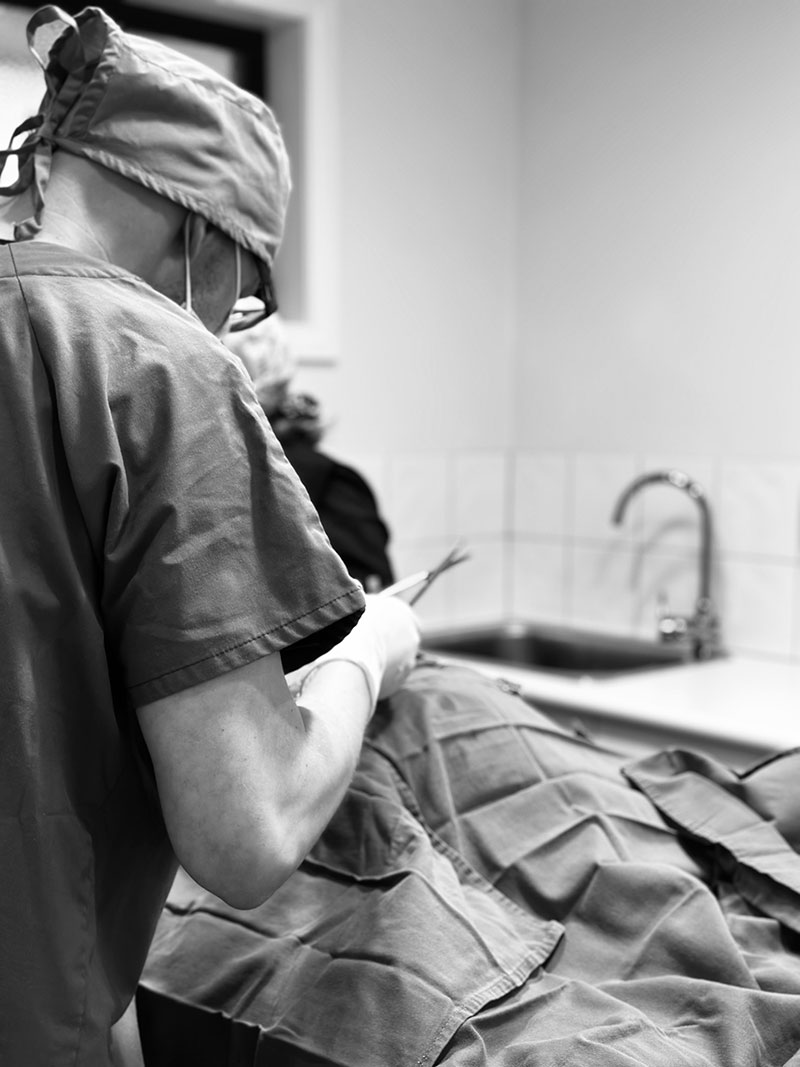
For all Albury Wodonga Animal Rescue related enquiries please call:
0436 435 035

| Monday | 8am-6pm |
| Tuesday | 8am-6pm |
| Wednesday | 8am-6pm |
| Thursday | 8am-6pm |
| Friday | 8am-6pm |
| Saturday | 9am-1pm |
| Sunday | Closed |
AFTER HOURS VETERINARY INFORMATION
To help keep up with demand, give our vets a rest and to ensure our clients have 24/7 access to vet advice, we have partnered with VetChat for all your after-hour pet care needs. VetChat vets are all Australian board certified, with a minimum of 5 year's experience and are passionate about improving pet health outcomes.
When our hospital doors close each day, VetChat will help us support you and your petby offering primary triage.
After Hours Support Costs:
VetChat
$39.00 6am - midnight AEST/AEDT
$59.00 midnight - 6am AEST/AEDT
If your pet requires emergency critical care, VetChat will alert our vet on call and we will be in contact shortly.
Please Note: The fee for a Vet to attend the hospital after hours is $430. After an examination and consultation, all recommended treatment plans will be discussed, including all additional fees.
To contact VetChat call 1300 215 328 or Click here to proceed to VetChat.